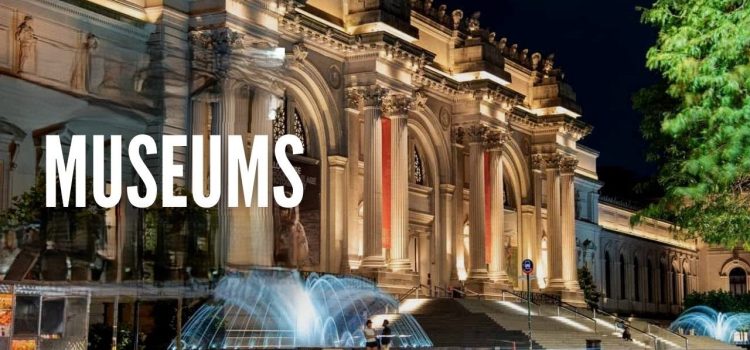
Introduction
History lovers want more than just books and documentaries. They enjoy places where they can see and feel history come alive. Museums are a great way to explore ancient times, important events, and different cultures. Whether you like ancient Egypt, medieval Europe, or modern wars, museums offer an exciting way to learn. In this guide, we will look at some of the best history museums around the world and what makes them special.
Why Visit Museums?
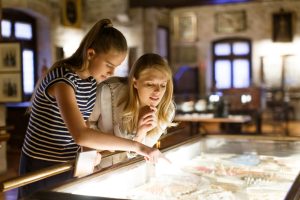
Museums help us understand the past by showing real objects and telling important stories. They help keep history alive for future generations. When you visit a museum, you can:
- See history up close with interactive exhibits.
- Learn about different cultures and traditions.
- Look at real artifacts from long ago.
- Gain a better understanding of human history.
Museums make history fun and meaningful. They allow us to connect with the past in a special way.
Best Museums to Visit for History Buffs
1. The British Museum (London, UK)
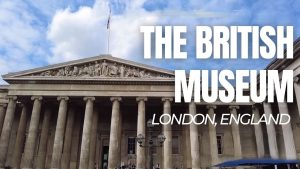
The British Museum is one of the most famous museums in the world. It has millions of objects from ancient times.
Highlights
- The Rosetta Stone, which helped understand Egyptian writing.
- The Parthenon Marbles from ancient Greece.
- Egyptian mummies and burial objects.
- Artifacts from Mesopotamia and Assyria.
The best part? Admission is free!
2. The Louvre Museum (Paris, France)

The Louvre is famous for art, but it also has many historical treasures.
Highlights
- The Code of Hammurabi, one of the oldest sets of laws.
- Egyptian artifacts, including sphinxes and coffins.
- Greek statues like the Venus de Milo.
- The museum building itself is historic!
This museum is perfect for those interested in ancient history and European culture.
3. The Smithsonian National Museum of American History (Washington, D.C., USA)

This museum tells the story of the United States and its people.
Highlights
- The original Star-Spangled Banner.
- Abraham Lincoln’s top hat.
- Objects from the Civil Rights Movement.
- Exhibits on the American Revolution and Founding Fathers.
This museum is a great way to learn about the history of the United States.
4. The Egyptian Museum (Cairo, Egypt)
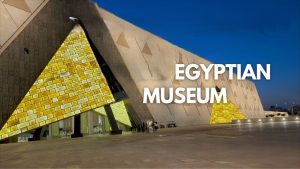
This museum is home to some of the most amazing artifacts from ancient Egypt.
Highlights
- King Tutankhamun’s treasures.
- Mummies of famous pharaohs.
- Ancient scrolls and statues.
- Artifacts from different Egyptian dynasties.
If you love ancient Egypt, this museum is a must-visit!
5. The Acropolis Museum (Athens, Greece)

This museum focuses on ancient Greek history and culture.
Highlights
- The Caryatid statues.
- Parthenon sculptures and friezes.
- Ancient Greek pottery and inscriptions.
- A glass floor with views of the Acropolis.
This museum is perfect for those who love Greek mythology and history.
6. The Anne Frank House (Amsterdam, Netherlands)

This museum tells the powerful story of Anne Frank and her time in hiding during World War II.
Highlights
- The secret annex where Anne Frank hid.
- Her original diary.
- Information about Nazi occupation and Jewish persecution.
- Stories of Holocaust survivors.
Visiting this museum is an emotional and unforgettable experience.
7. The Vatican Museums (Vatican City)
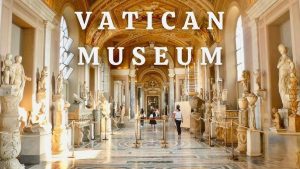
These museums hold centuries of religious and artistic history.
Highlights
- The Sistine Chapel, painted by Michelangelo.
- The Raphael Rooms.
- Ancient Roman and Egyptian artifacts.
- St. Peter’s Basilica and its history.
This museum is a great mix of history, religion, and art.
8. The Hiroshima Peace Memorial Museum (Hiroshima, Japan)

This museum tells the story of the atomic bomb in Hiroshima.
Highlights
- Personal items from victims.
- The history of nuclear weapons.
- Stories from survivors (Hibakusha).
- A message of peace and nuclear disarmament.
It is a sad but important place to learn about modern history.
9. The Topkapi Palace Museum (Istanbul, Turkey)

This palace was home to Ottoman sultans and holds treasures from the empire.
Highlights
- Imperial weapons, jewelry, and manuscripts.
- Relics of the Prophet Muhammad.
- Beautiful views of the Bosporus.
- The famous Harem quarters.
This museum is a great place to learn about the Ottoman Empire.
10. The War Remnants Museum (Ho Chi Minh City, Vietnam)

This museum explores the Vietnam War and its effects.
Highlights:
- Photos and stories from the war.
- Military equipment, including planes and tanks.
- Stories of war victims.
- The effects of Agent Orange and land mines.
This museum gives a deep and emotional look at the impact of war.
Museums and Tourism
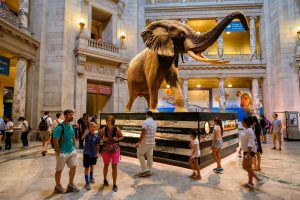
Museums are a big part of tourism. Many people travel to different places just to visit famous museums. These museums help cities attract visitors, which boosts the local economy. Tourists spend money on tickets, food, and souvenirs, helping businesses grow.
Museums as Safe Spaces
Museums provide a safe space for learning and exploring. They are places where people can ask questions and think about history, art, and culture. Museums also create an environment where people of all backgrounds can feel welcome and included.
Museums and Technology
Technology is making museums more exciting. Many museums now have touchscreens, virtual reality, and interactive exhibits. These tools make learning fun and help visitors understand history and science in new ways. Some museums even have apps that give extra information about exhibits.
Museums and Social Change
Museums can also help bring social change. They tell stories about important historical events and teach visitors about different cultures. Some museums focus on human rights, climate change, and other global issues. By sharing these stories, museums help people learn and think about the world in new ways.
The Importance of Community Involvement
Community involvement is essential for the success of museums. When local people participate in museum activities, it creates a stronger connection between the museum and the community. Museums can hold workshops, lectures, and events that encourage community members to share their stories and cultures. This involvement helps museums reflect the diversity of their communities and ensures that they serve everyone.
Educational Programs for All Ages
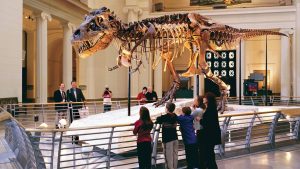
Museums often offer educational programs for people of all ages. Schools can organize field trips to museums to give students a chance to learn outside the classroom. Many museums provide hands-on activities, guided tours, and special workshops tailored for children, teens, and adults. By offering these programs, museums make learning fun and engaging, inspiring a love for history and culture.
Sustainability in Museums
Sustainability is becoming a focus for many museums. They are looking for ways to reduce their environmental impact. This can include using energy-efficient lighting, reducing waste, and creating exhibits that teach visitors about environmental issues. By promoting sustainability, museums can lead by example and encourage visitors to take care of the planet.
Improving Accessibility
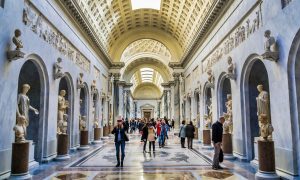
Making museums accessible to everyone is an important goal. Many museums are working to ensure that people with disabilities can enjoy their exhibits. This might include providing ramps, audio guides, and special programs for those who need them. By improving accessibility, museums can welcome more visitors and ensure that everyone has the chance to learn and explore.
Preserving Ancient Artifacts
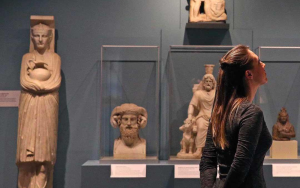
Museums help protect ancient objects and artifacts. Without museums, many old and valuable items could be lost or destroyed. Museums keep these artifacts safe so future generations can see and learn from them. They also study and restore old objects to keep them in good condition.
Challenges Facing Museums
Despite their many benefits, museums face challenges. Funding can be a significant issue, as many rely on donations and grants to operate. Museums must also adapt to changing technology and visitor expectations, which can require new exhibits and experiences. Additionally, they need to address issues of diversity and representation to ensure all voices are heard.
Future of Museums
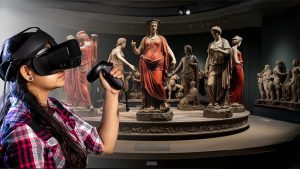
The future of museums looks promising. As technology advances, museums can use virtual reality and interactive displays to create more engaging experiences. They may also expand their focus on inclusivity, ensuring that all visitors feel welcome and represented. By continuing to innovate and adapt, museums can remain relevant and continue to educate and inspire people for years to come.
The Importance of Community Involvement
Analysis Table: Top Museums for History Lovers
| Museum | Location | Specialty | Top Attraction |
|---|---|---|---|
| British Museum | London, UK | Ancient Civilizations | Rosetta Stone |
| Louvre Museum | Paris, France | Art & History | Mona Lisa |
| Egyptian Museum | Cairo, Egypt | Ancient Egypt | King Tut’s Treasures |
| Anne Frank House | Amsterdam, Netherlands | WWII History | Anne Frank’s Diary |
| Vatican Museums | Vatican City | Religious & Art History | Sistine Chapel |
| Hiroshima Peace Memorial | Hiroshima, Japan | War History | Atomic Bomb Exhibit |
Conclusion
Museums help us understand the past and learn about different cultures, events, and people. From the grand halls of the Louvre to the emotional exhibits of the Hiroshima Peace Memorial Museum, these places offer valuable knowledge. Whether you love ancient artifacts, military history, or cultural heritage, these museums will deepen your appreciation for history.
Call to Action
Have you visited any of these museums? Which one would you love to see? Share your thoughts in the comments!








